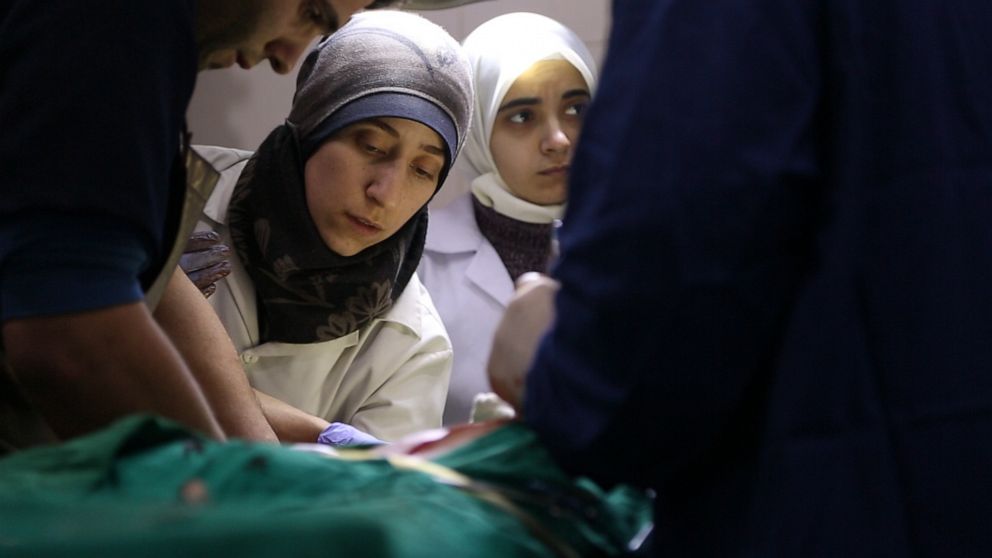The Women of Ghouta
In 2018, much of our work was focused on the ongoing and horrific siege of eastern Ghouta. Our supporters were engaged and devastated by the news, but it was up to us to think of new ways to ensure a wider audience was made aware of the siege.

On 8 March 2018, International Women’s Day, we broke with campaigning best practices, which say that a campaign action should only have one clear ask. Instead, we sent our supporters an email with a list of actions. Multiple asks can confuse people and result in certain actions not being taken, but since we’d been repeatedly communicating with our supporters on Ghouta, we felt they understood the issue well enough to be sent a list of things they could do to help.
This could be my last post. The catastrophic situation is now well known to all… Yesterday was an indescribable day. Chlorine and cluster bombs, barrel bombs, and rocket shells. They tried everything to bury us alive in the basements. No words left for us to say and no conscience or humanity left in those remaining silent and allowing this to happen
Nivin Hotary, activist
In the email, we began by giving the latest news from Ghouta, which had been hit with napalm, barrel bombs, missile strikes, and a chlorine gas chemical attack. We then let the women of Ghouta speak directly to our supporters by including a message from the brave activist Nivin Hotary who wrote: “This could be my last post. The catastrophic situation is now well known to all… Yesterday was an indescribable day. Chlorine and cluster bombs, barrel bombs, and rocket shells. They tried everything to bury us alive in the basements. No words left for us to say and no conscience or humanity left in those remaining silent and allowing this to happen.” Including Nivin’s message reflected our ongoing commitment to keep the voices of Syrians at the heart of our work.
Below Nivin’s words, we included a list of ways our supporters could help the women of Ghouta. These ranged from sharing Nivin’s message, sharing writings and albums related to the women of Ghouta, donating to Um Samih’s charity One Hand and the Syrian-focused organisation Women Now, and carrying a banner in support of Ghouta’s women on any International Women’s Day marches. Within a day, the funding target for One Hand was reached, and Women Now also reported a surge in donations.
What we learnt
Sometimes it’s okay to break with best practice, if you feel it will best serve the campaign. Linking an internal issue to an international event can also be a good way to boost support.